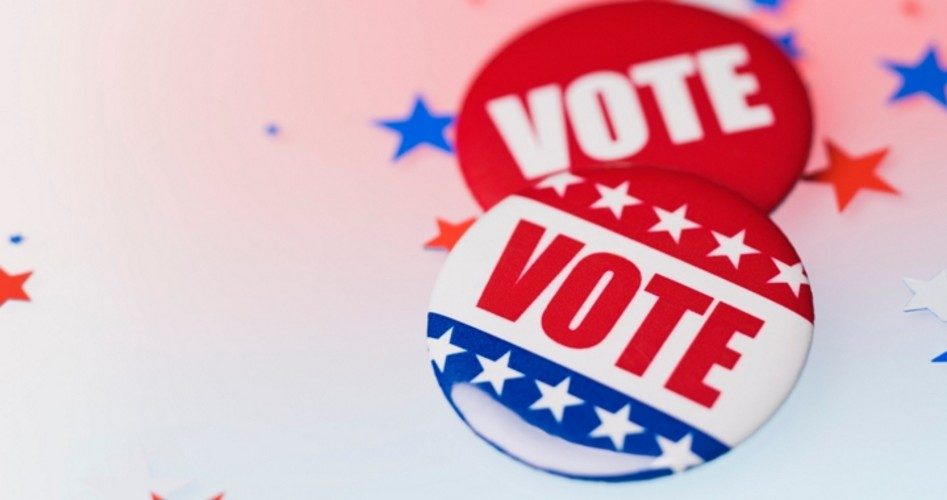
The definition of the right of suffrage is very justly regarded as a fundamental article of republican government.
— James Madison, The Federalist, No. 52
A group of legislators in Oregon is promoting a bill that would lower the legal voting age in that state to 16, insisting that young people in the Beaver State should have more direct control of decisions that affect their future.
“It’s time to lower the voting age in Oregon and to give our young people a chance to participate in the ballot, about their decisions that affect their homes, their clean air, their future, their schools and as we’ve seen, their very lives,” explained state Representative Shemia Fagan, one of the bill’s primary proponents.
“The state senator pointed to the young activists who became engaged after the Parkland shooting in Florida, which left 17 people dead. They proved young people are active and should have a right to vote, Fagan said,” as quoted in a story published by Oregon Public Broadcasting online.
Teenagers took to the steps of the state capitol building to express support for the proposal.
“Why can I drive like an adult, pay taxes like an adult, have an abortion like an adult, be charged and sentenced like an adult, but I can’t vote like an adult?” asked Christine Bynum, a student at La Salle High School, also quoted in the Oregon Public Broadcasting piece.
Another teen, Conor Gabor, spoke in favor of lowering the voting age.
“When we have a lockdown and fear for our lives, we know what that feels like. We want to take agency over our own lives,” Gabor said.
Speaking of schools, it is difficult to accept extending the suffrage to young men and women whose understanding of the roots of the republic has been guided in most cases by the ridiculous rubbish published in “social studies” textbooks and “taught” by “teachers” who are trained to be petty bureaucrats — handing out forms, collecting forms, making sure the forms are filled out according to the regulatory rubrics, collating the forms, entering the forms’ data in a spreadsheet, etc. — rather than masters of the subjects they profess to teach.
This is not an isolated case. The ignorance of the students is not wholly their own fault, as many of their teachers are themselves ignorant of the Constitution, the process by which it became the law, and the metes and bounds of the government created by its clauses.
It isn’t, then, that 16-year-olds are per se unqualified to vote, it’s just that very few of them have the knowledge requisite to sustaining self-government and would likely vote according to the “rights” they are told they are given by government.
Just to take one example, let’s look at how the Second Amendment is portrayed in the pages of the textbooks from which our children are “taught.”
In a textbook approved by Common Core for use by students studying for the Advanced Placement (AP) history exam, the Second Amendment is defined this way: “The Second Amendment: The people have the right to keep and bear arms in a state militia.”
Another book that received the Common Core stamp of approval informs students that the Second Amendment “grant[s] citizens the right to bear arms as members of a militia of citizen-soldiers.”
Then, there is a worksheet reportedly approved by Common Core for use by history teachers in preparing lessons on the Bill of Rights that “informs” students, “The Government of the United States is currently revisiting The Bill of Rights. They have determined that it is outdated and may not remain in its current form any longer.”
Actually, the statement is not a statement of fact, but an introduction to a proposed lesson asking the students to “prioritize, revise, prune two and add two amendments to The Bill of Rights.”
Finally, there is the description of the Second Amendment published in a book approved by Common Core for use in elementary schools.
Regarding the Second Amendment, the authors of the book state, “This amendment states that people have the right to certain weapons, providing that they register them and they have not been in prison. The founding fathers included this amendment to prevent the United States from acting like the British who had tried to take weapons away from the colonists.”
Now, imagine that a voter, taught these “facts” about the Second Amendment, was called upon to cast a ballot on an initiative to limit the ownership of handguns to those serving in the military or law enforcement. Do you think that a young voter taught such things would approve or reject such a proposal?
Now imagine millions of them doing likewise across the Union. Imagine them voting on a proposed constitutional amendment that would make such an alteration to the existing Second Amendment.
Again, it isn’t that age itself should be the deciding factor in questions of expanding the suffrage, but in our day, when the truths of history are nearly never taught, young Americans do not possess the knowledge necessary to maintain self-government.
It is true enough that many qualified voters are likewise lacking in the understanding sufficient to sustain a republic, but an effort to shrink the size of the voting pool would be stillborn as Americans have become accustomed to being able to vote themselves into a comfortable dependency.
I’ll close with a sentence from Cato’s Letters, the essays penned by John Trenchard and Thomas Gordon in the 1720s, essays that were of immeasurable influence on the minds of our Founding Fathers when they were but schoolboys. In letter Number 38, Thomas Gordon warns, “Hence it is, that we every where find Tyranny and Imposture, Ignorance and Slavery, joined together; and Oppressors and Deceivers mutually aiding and paying constant Court to each other. Wherever Truth is dangerous, Liberty is precarious.”
Representative Fagan’s proposal to lower the voting age in her state to 16 would require an amendment to the Oregon Constitution. If approved by legislators, the measure would be placed on the ballot for the people of the state to decide. Fagan told reporters that she hoped the issue would be on the ballot in 2020.



